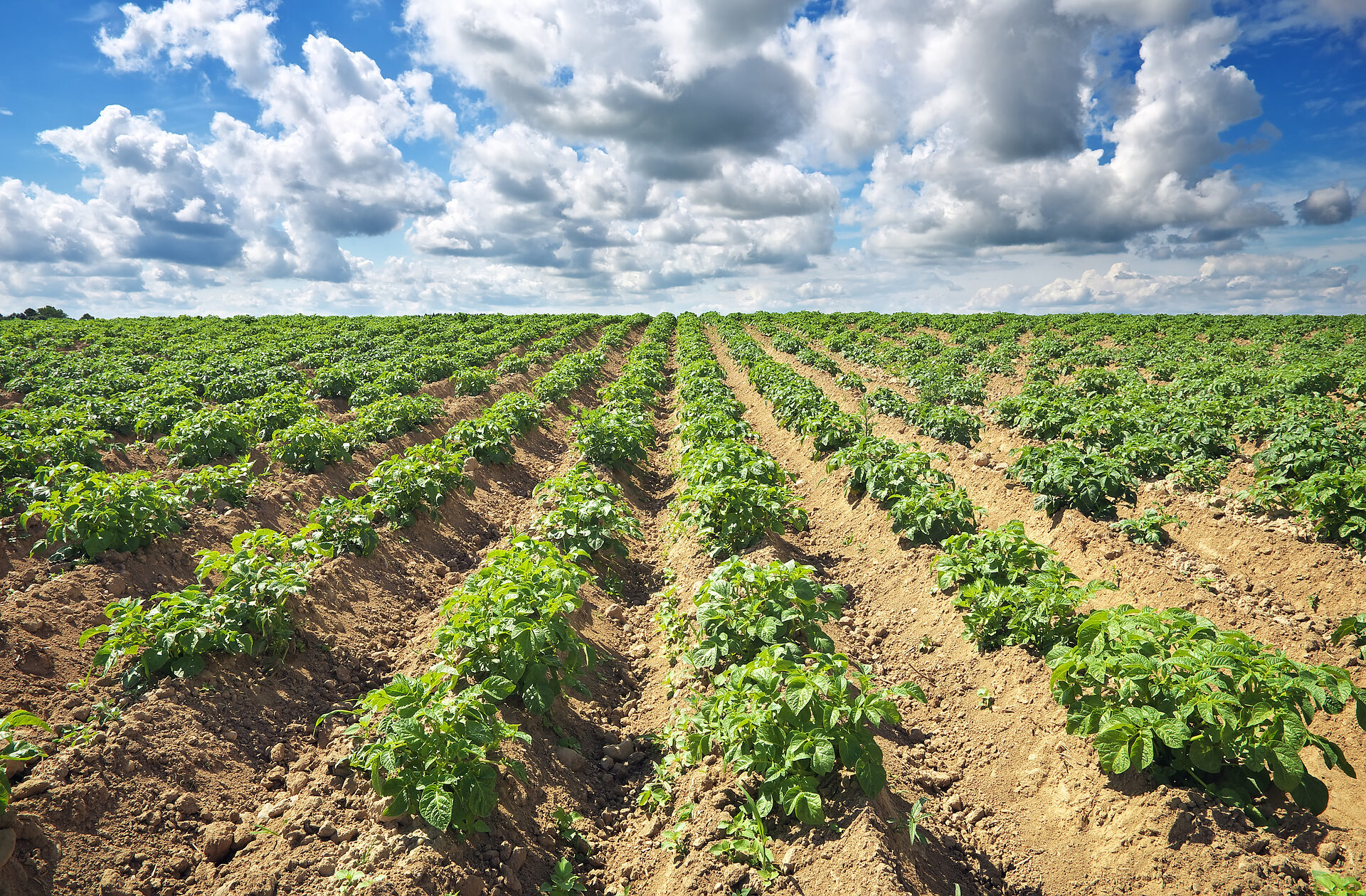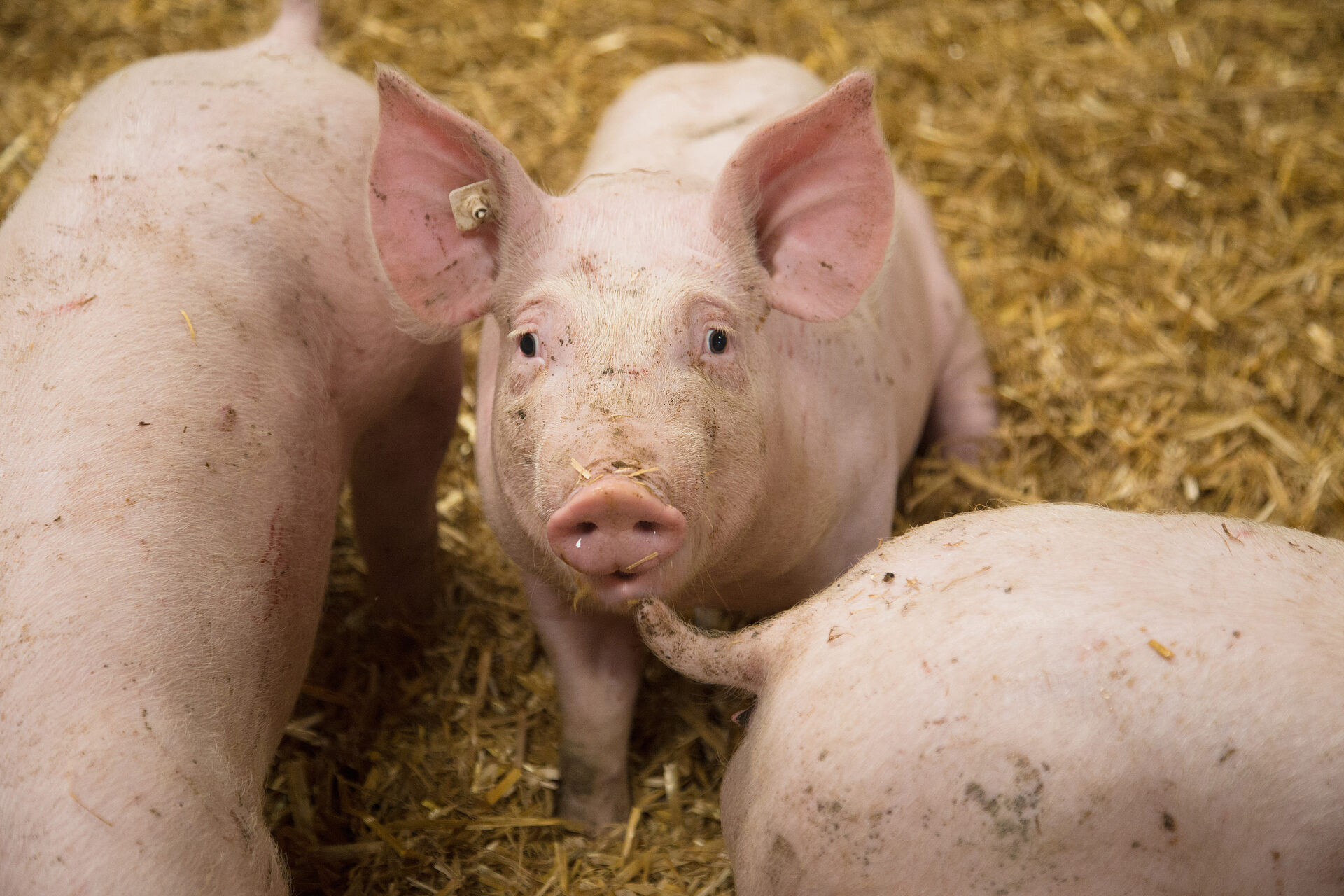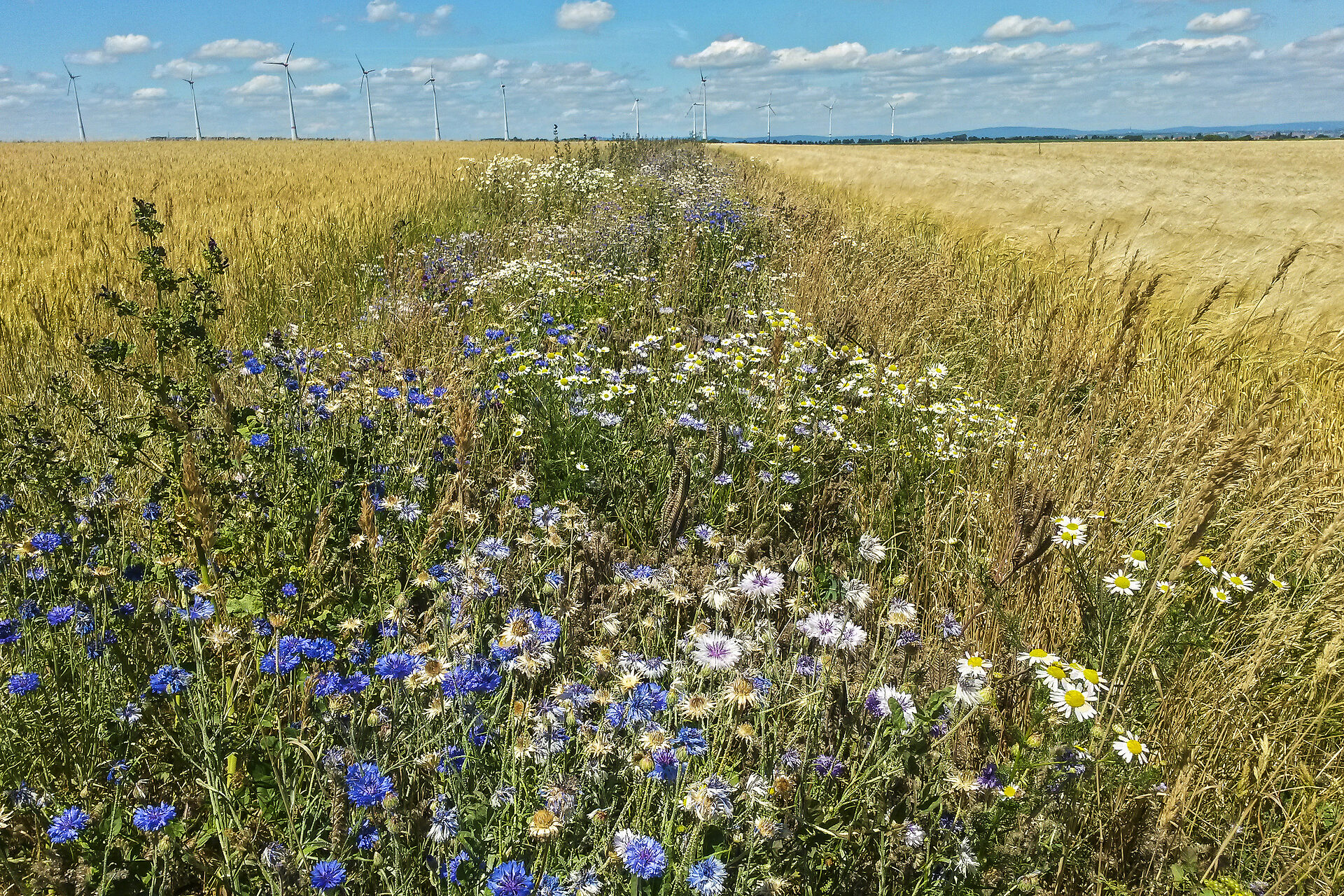Eight billion people now live in the world. Food security is becoming one of the challenges of our time. But in the end, only intact biodiversity and healthy soils guarantee the preservation of the foundations of life. Agriculture plays a key role in this. 7.7 percent of annual greenhouse gas emissions in Germany come from the agricultural sector, caused mainly by methane emissions from animal husbandry and nitrous oxide emissions from the soil. Agriculture is also considered to be a driving force behind the decline in biodiversity: on intensively used land, many animal and plant species no longer find habitats and disappear.
The effects of these environmental changes in turn threaten agricultural productivity. Depleted arable land, nitrate contamination of groundwater and pesticides in the environment are just some of the challenges currently facing farmers. Sustainable Development Goal 2 of the 2030 Agenda calls for a shift to resource-efficient agriculture to ensure food security for all people worldwide. The change to sustainable agriculture in Germany is therefore urgently needed for a variety of reasons. The goal must be increased climate and biodiversity protection as well as adapted nitrogen management and reduced pesticide use – also with regard to food security: food losses along the value chain must be minimized. In reducing these losses, all parties involved in the process, but especially consumers, have a great responsibility. Better knowledge of sustainable food production, manufacturing, marketing, storage and preparation is needed.
In this regard, the DBU supports projects in the funding topics of sustainable nutrition and sustainable food handling and reduction of emissions of reactive nitrogen compounds into environmental compartments. Furthermore, there is a funding initiative for the prevention and reduction of pesticides in the environment.


